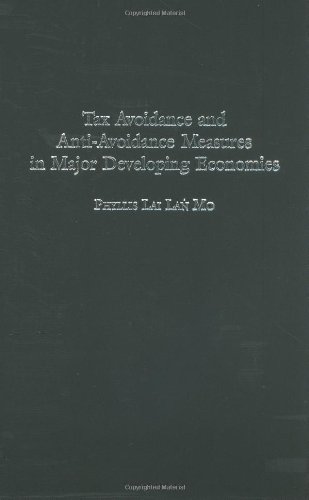

Most ebook files are in PDF format, so you can easily read them using various software such as Foxit Reader or directly on the Google Chrome browser.
Some ebook files are released by publishers in other formats such as .awz, .mobi, .epub, .fb2, etc. You may need to install specific software to read these formats on mobile/PC, such as Calibre.
Please read the tutorial at this link: https://ebookbell.com/faq
We offer FREE conversion to the popular formats you request; however, this may take some time. Therefore, right after payment, please email us, and we will try to provide the service as quickly as possible.
For some exceptional file formats or broken links (if any), please refrain from opening any disputes. Instead, email us first, and we will try to assist within a maximum of 6 hours.
EbookBell Team

4.1
60 reviewsTax avoidance and evasion have an important effect on the economic development of every economy. Developing economies are particularly vulnerable to tax avoidance and evasion due to inadequacies in their institutional framework and the lack of sufficient expertise and resources to monitor the intricacies of this issue. Given the far-reaching effect of revenue losses due to tax noncompliance, many developing countries have undertaken tax reforms to improve their tax administration and implemented various anti-avoidance measures to combat tax evasion. This book provides an overview of recent tax reforms and institutional frameworks of four major developing economies, China, India, Brazil, and Mexico, with a focus on China.
Most important, this book investigates the tax avoidance behaviors as well as their anti-avoidance legislation. In particular, this book includes an in-depth empirical study on tax noncompliance behaviors of foreign investors detected by the Chinese tax authorities. The empirical evidence on how tax policy and other corporate factors affect tax avoidance behavior helps public policy makers improve tax compliance through designing legislative and administrative measures. Though the findings pertain to China, the largest developing economy, the results should be a useful reference for other developing countries.